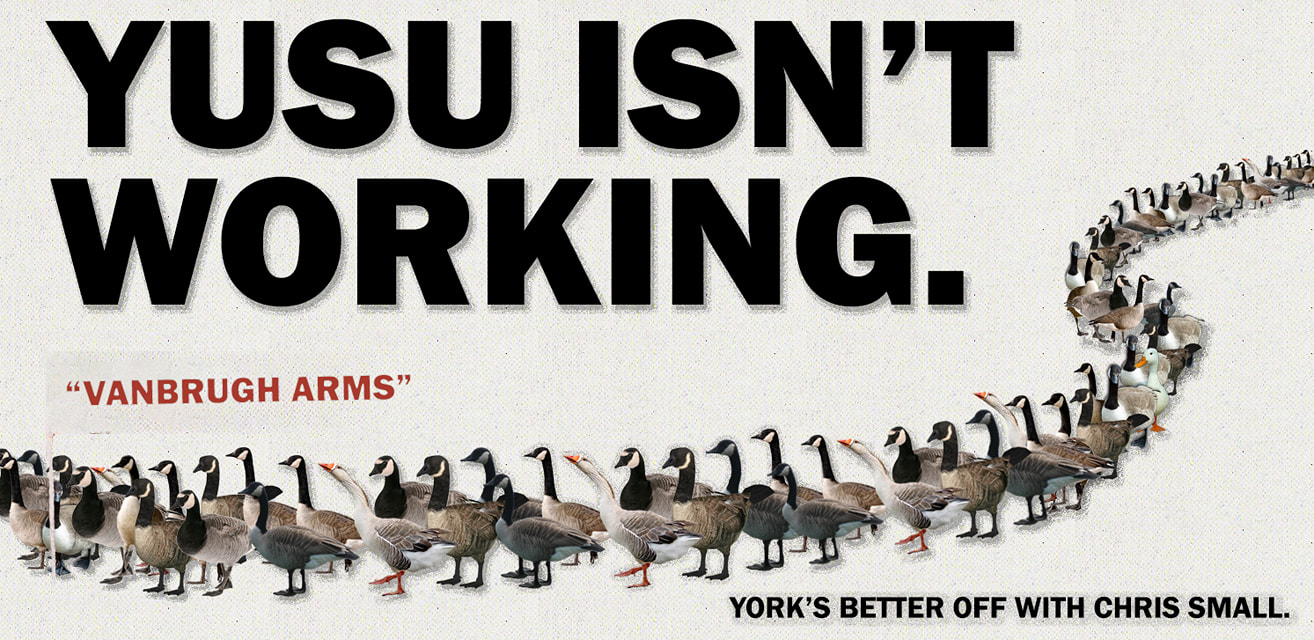There’s an imposter among us, who can spot the joke candidate? They’re typically wearing something garish, a Belisha beacon among a sea of pseudo-seriousness. A bet probably got them there, and you can bet you’ll have forgotten about them by the time results night comes around.
York has a fine line in joke candidates. They’ve won, they’ve lost, they’ve narrowly missed. Some have been consigned to the dustbin of history, and some are still suffocating in the trash.
There’s the odd interplay between what a victory actually looks like for a joke candidate. Is it to win a big upset, or to narrowly miss while having fun along the way? Mad Cap n’ Tom swept to victory in 2008, promising cutlasses for all and swashbuckling lessons. After the shock victory, Tom rolled up his sleeves and took the job seriously.
On occasion the lines become blurred, and it’s unclear whether it’s meant to be a joke or if they’re having a bad dissertation week. If it’s not clear whether you’re a joke candidate, either I must commend you for your incredible performance and satirisation of this affliction, or you’re in need of a rethink.
When you think you’re voting for a joke candidate and it turns out they’re serious, it’s a kick in the teeth for any budding voter. It’s like ordering your first vegan sausage roll to find that in the second you looked away they’ve demolished the Greggs and replaced it with an abattoir. Not cool.
Joke candidates have their advantages. They can also bring new voters into the process and engage them on issues that affect students. I’m not sure the person who ran for President as Ron Weasley in 2015 widened the debate, but I’m sure that friendship group was more invested than they could have imagined just a few weeks before. A Longbottom ran for RAG officer the same year but that was just a coincidence. These types of candidates are a flash in the pan, they’re a surprise but don’t have much of a point.
Good-humoured shock and awe candidates have their place, but I crave the serious joke campaigns that commit to an angle and put in the effort to make it work. Take Chris Small, a satirical candidate who blended absurd ideas with enough truth to cut through.
A referendum on referendums? Perhaps students want officers to make more decisions for them. Making V Bar V Bar again? Maybe Vanbrugh Arms needs a rethink. He came in second in 2019 while getting students engaged with good-humoured fun, and serious ideas. More of this please.
There’s more to joke candidates than just a character and a few jokes; they can serve a purpose. Joke candidates can reveal deficiencies in both the offices they run for, and the candidates they’re up against. Do they have a bizarre idea that seems implausible? It may be just as implausible as ideas floated by the “serious” candidates.
Joke candidates that do take the time to develop clear themes can cut through. If you must, keep the geese joke drudgery as an addendum to your campaign rather than the centrepiece. Move with the times and enjoy the campaign.
Push the boundaries of the entire elections process. I’ve drawn plenty (perhaps too much) of enjoyment out of the idea of running for all five sabb positions simultaneously, each with a brand new manifesto and the most minimal, ridiculous differences in appearance. Imagine the sheer absurdness of going all five rounds in the annual debate night bout. Sports President is up next? Thank God I packed my tracksuit bottoms.
You don’t have to take yourself seriously to be serious about something. Treat it as a serious campaign and it can be more rewarding for everyone involved. You never know, if it goes well you may even find yourself sweating at the prospect of actually winning.

